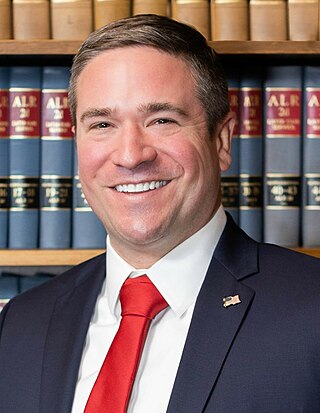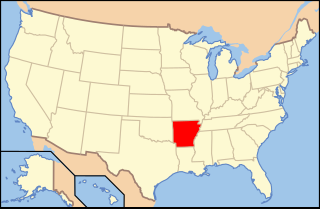In most common law jurisdictions, the attorney general or attorney-general is the main legal advisor to the government. In some jurisdictions, attorneys general also have executive responsibility for law enforcement, prosecutions or even responsibility for legal affairs generally. In practice, the extent to which the attorney general personally provides legal advice to the government varies between jurisdictions, and even between individual office-holders within the same jurisdiction, often depending on the level and nature of the office-holder's prior legal experience.

The Illinois attorney general is the highest legal officer of the state of Illinois in the United States. Originally an appointed office, it is now an office filled by statewide election. Based in Chicago and Springfield, the attorney general is responsible for providing legal counsel for the various state agencies including the governor of Illinois and Illinois General Assembly, as well as conducting all legal affairs pertaining to the state.
An advisory opinion is an opinion issued by a court or a commission like an election commission that does not have the effect of adjudicating a specific legal case, but merely advises on the constitutionality or interpretation of a law. Some countries have procedures by which the executive or legislative branches may certify important questions to the judiciary and obtain an advisory opinion. In other countries or specific jurisdictions, courts may be prohibited from issuing advisory opinions.

An advocate general of a state is a senior officer of the law. In some common law and hybrid jurisdictions the officer performs the function of a legal advisor to the government, analogous to attorneys general in other common law and hybrid jurisdictions. By contrast, in the European Union and some continental European jurisdictions, the officer is a neutral legal advisor to the courts.

The attorney general of North Carolina is a statewide elected office in the U.S. state of North Carolina. The attorney general is a constitutional officer responsible for representing state agencies in legal matters, supplying other state officials and prosecutors with legal advice, and leading the North Carolina Department of Justice. The incumbent attorney general, Josh Stein, assumed office on January 1, 2017. The position of attorney general dates back to North Carolina's colonial history. North Carolina's 1776 constitution established the office as an official appointed by the North Carolina General Assembly. The state's 1868 constitution made the attorney general an elected executive official with their duties prescribed by law. Since 1971, the officer has sat on the North Carolina Council of State.
The Constitution of Arkansas is the primary organizing law for the U.S. state of Arkansas delineating the duties, powers, structures, and functions of the state government. Arkansas' original constitution was adopted at a constitutional convention held at Little Rock in advance of the territory's admission to the Union in 1836. In 1861 a constitution was adopted with succession. After the American Civil War its 1864 constitution was drafted.An 1868 constitution was passed to comply with the Reconstruction acts. The current constitution was ratified in 1874 following the Brooks–Baxter War.

The attorney general of Minnesota is a constitutional officer in the executive branch of the U.S. state of Minnesota. Thirty individuals have held the office of Attorney General since statehood. The incumbent is Keith Ellison, a DFLer.

The attorney general of New Mexico, an elected executive officer of the state, oversees the New Mexico Attorney General's Office and serves as head of the New Mexico Department of Justice.

The attorney general of Oklahoma is the State Attorney General for the state of Oklahoma. The attorney general serves as the chief legal and law enforcement officer of the State of Oklahoma and head of the Office of the Oklahoma Attorney General. The attorney general is responsible for providing legal advice to the other departments and agencies of the executive branch, legislative branch and judicial branch of the state government. The attorney general is also responsible for the prosecution of offenses against Oklahoma law and advocate for the basic legal rights of Oklahoma residents.

The government of the U.S. State of Oklahoma, established by the Oklahoma Constitution, is a republican democracy modeled after the federal government of the United States. The state government has three branches: the executive, legislative, and judicial. Through a system of separation of powers or "checks and balances," each of these branches has some authority to act on its own, some authority to regulate the other two branches, and has some of its own authority, in turn, regulated by the other branches.

The Oregon attorney general is a statutory officer within the executive branch of the state of Oregon, and serves as the chief legal officer of the state, heading its Department of Justice with its six operating divisions. The attorney general is chosen by statewide partisan election to serve a term of four years. The incumbent, Ellen Rosenblum, was sworn in on June 29, 2012, replacing John Kroger, a Democrat who was elected in 2008 and resigned six months before the end of his term to become president of Reed College. She was re-elected in 2016 and 2020.

The Texas attorney general is the chief legal officer of the U.S. state of Texas. The current officeholder, Republican Ken Paxton, has been elected to the position since January 5, 2015, by general election.

The Office of the Missouri Attorney General was created in 1806 when Missouri was part of the Louisiana Territory. Missouri's first Constitution in 1820 provided for an appointed attorney general, but since the 1865 Constitution, the Attorney General has been elected. As of January 2023, there have been 44 attorneys general in Missouri.

The Indiana Attorney General is the chief legal officer of the State of Indiana in the United States. Attorneys General are chosen by a statewide general election to serve for a four-year term. The forty-fourth and current Attorney General is Todd Rokita.

The attorney general of Mississippi is a statewide elected office in the U.S. state of Mississippi. The attorney general is a constitutional officer responsible for representing state agencies in legal matters, supplying other state officials and prosecutors with legal advice, and bringing lawsuits on behalf of the state. They serve a four-year term with no term limits.

The Nevada Attorney General is the chief legal officer for the U.S. state of Nevada. The functions of the office are set forth in Nevada Revised Statutes, Chapter 228. The Attorney General represents the people of Nevada in civil and criminal matters before trial, appellate and the supreme courts of Nevada and the United States. The Attorney General also serves as legal counsel to state officers and, with few exceptions, to state agencies, boards and commissions.
The Maine Attorney General is the chief legal advisor and prosecutor of the State of Maine. The constitutional basis of the office is Article IX, Section 11 of the Maine Constitution, and the holder of the position is chosen biennially by the Maine Legislature in joint session. Maine is the only state to select its attorney general in such a manner; in 2023 a group of state Republicans called for the Attorney General to be selected by popular vote, though no action was taken on the proposal.

The Constitution of Kingdom of Bhutan was enacted 18 July 2008 by the Royal Government of Bhutan. The Constitution was thoroughly planned by several government officers and agencies over a period of almost seven years amid increasing democratic reforms in Bhutan. The current Constitution is based on Buddhist philosophy, international Conventions on Human Rights, comparative analysis of 20 other modern constitutions, public opinion, and existing laws, authorities, and precedents. According to Princess Sonam Wangchuck, the constitutional committee was particularly influenced by the Constitution of South Africa because of its strong protection of human rights.

Gun laws in Arkansas regulate the sale, possession, and use of firearms and ammunition in the state of Arkansas in the United States.

The National Judicial Appointments Commission (NJAC) was a proposed body which would have been responsible for the recruitment, appointment and transfer of judicial officers, legal officers and legal employees under the government of India and in all state governments of India. The commission was established by amending the Constitution of India through the 99th constitution amendment with the Constitution (Ninety-Ninth Amendment) Act, 2014 or 99th Constitutional Amendment Act-2014 passed by the Lok Sabha on 13 August 2014 and by the Rajya Sabha on 14 August 2014. The NJAC would have replaced the collegium system for the appointment of judges as invoked by the Supreme court via judicial fiat by a new system. Along with the Constitution Amendment Act, the National Judicial Appointments Commission Act, 2014, was also passed by the Parliament of India to regulate the functions of the National Judicial Appointments Commission. The NJAC Bill and the Constitutional Amendment Bill, was ratified by 16 of the state legislatures in India, and subsequently assented by the President of India Pranab Mukherjee on 31 December 2014. The NJAC Act and the Constitutional Amendment Act came into force from 13 April 2015.


































